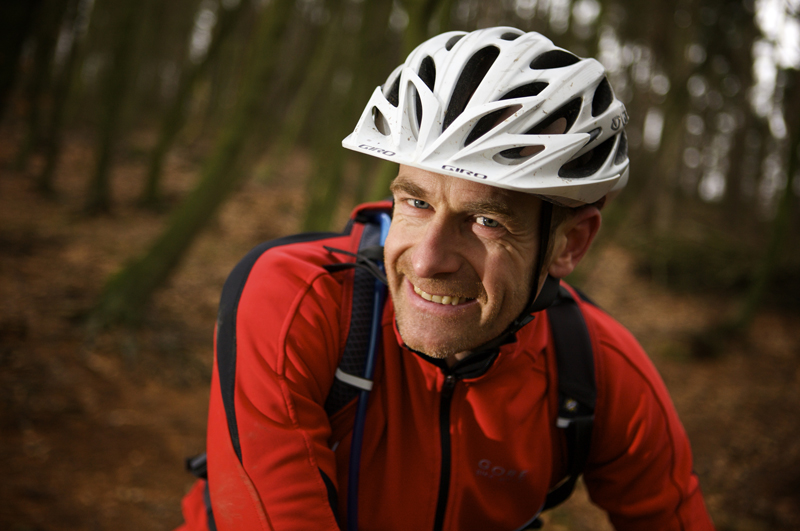Evans Cycles’ Pinnacle in-house brand has to be one of the most overlooked around. The Iroko 1 is a cleverly-detailed, radical-handling trail tamer at a great price.
While the Iroko lacks extensive external shaping, a mix of triple and double-butted construction minimises the weight of its main tubes without compromising strength or stiffness.
The down tube to head tube junction is reinforced with a gusset, which is a fairly retro way of doing things but works fine. A shim in the 31.6mm seat tube means a shock-absorbing 27.2mm post can be supplied as standard but you can upgrade to a dropper in future.

There are replaceable cable/hose ports for both a dropper and a Shimano ‘Side Swing’ front mech. If you go single-ring at a later date, the band-on front mech and bolted cable guides under the top tube mean you’ll only be left with a small seat tube cable guide looking unloved. The bottom bracket shell is reinforced at the ends but slim in the centre to save weight.
Frame geometry is bang up to date, particularly in terms of reach. A lot of full-suspension enduro bikes would be jealous of the 460mm stretch of my large sample.
The 67.5-degree head angle strikes a good balance between self-correcting and swiftly responsive steering, which keeps the long wheelbase from feeling too barge-like at low speeds. Stability is added by the low bottom bracket, and there’s reasonable mud room.
Pinnacle Iroko 1 kit
The Pinnacle is rocking Shimano Deore gears front and rear, but the double crankset is from Samox and has slightly smaller chainrings.
The Iroko still uses an external bottom bracket though, and its shift and drive performance is fine. M500 series Deore brakes are a whole league more controlled and subtly modulated than the M300 and M400 brakes on the Whyte 801 (2018), Saracen Mantra Trail and Genesis Core 30 that were also on test.

The RockShox Recon fork adds a 15mm axle to the steering equation, as well as 32mm-diameter steel legs. ‘TK’ damping means that even a tiny tweak of the rebound adjuster makes a big difference, so use it carefully.
A cup-and-cone Shimano rear hub adds longevity, while the 23mm-wide Alex rims bulk up tyres slightly and are tubeless ready. The WTB tyres are also ready for you to swap the inner tubes for sealant, for extra grip and puncture protection.
Despite decent muddy trail grip they’re fast rolling and supple in feel too, although they need TLC to survive seriously rocky sections. The stubby 35mm stem gives more than enough manoeuvrability to dodge the worst stuff though, and is the dominant aspect of initial ride impressions.

Pinnacle Iroko 1 ride impressions
This review formed part of our hardtails under £1,000 test, and while our core testers are used to long-reach top tubes and super-short stems, and they generally love them, what was interesting was how the less-experienced riders we drafted in to replicate the likely ‘first proper bike’ buyers at this price reacted to this set-up.
There was some initial shock at how much front wheel was visible in front of the bar, but the combination of inherent long-front-end stability and super-light, instant-correction steering started making sense to them within just a few metres, particularly on twisty/rooty/rocky singletrack.

Most riders preferred the Pinnacle’s steeper head angle at slower speeds and on climbs than the slacker steering of the Whyte. Add an accurate fork, decent grip from the tyres and the most tactile brakes on test, and the Iroko was soon the favourite on more challenging terrain as well.
It generates and holds speed well too, with the large frame tubes giving a keen response to any power you put through the pedals. But even with a skinny post and wider rims than some of the other bikes here, larger shocks and jolts come through to the rider relatively unfiltered. That means a dropper and/or turning the wheels tubeless should definitely be on your upgrade list. You’ve got a head start in terms of kit value over the Whyte, Saracen and Genesis though.

